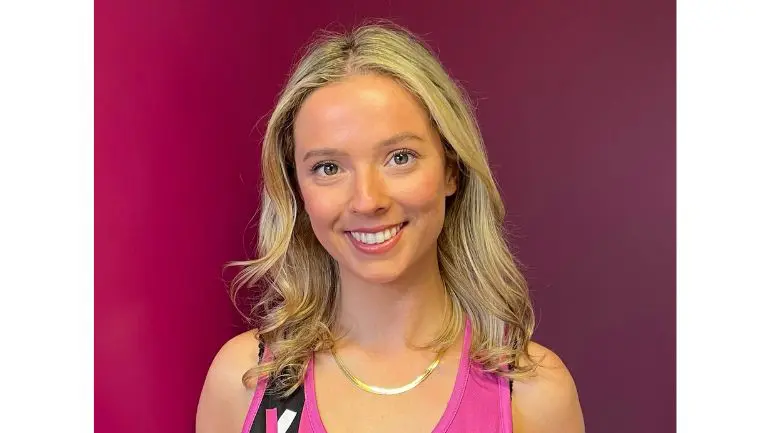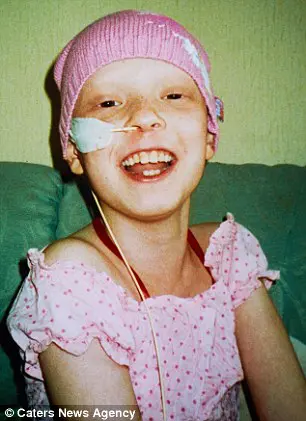Disabled Access Day – Sophie shares her experience
Sophie Hartley, Mass Participation Events Manager at Young Lives vs Cancer, shares her experience of being disabled and what it means to her this Disabled Access Day. She was diagnosed with bone cancer aged eight.

Sophie Hartley, Mass Participation Events Manager at Young Lives vs Cancer
I’m Sophie and I’ve been disabled since the day of my Ewing’s Sarcoma diagnosis on April 21st 2005, but I didn’t always know this!
My treatment for bone cancer meant having a knee replacement because my tumour was in my thigh bone. Unfortunately metal doesn’t grow like bone does, so I also had 10 leg lengthening surgeries from the age of nine to 16. I used crutches and wheelchairs a lot throughout this time.
I had never classified myself as disabled due to the societal stigma. I always felt caught in the in-between of abled and disabled. I didn’t have my leg amputated, but I don’t have a fully functioning leg.
I thought calling myself disabled would be ‘giving up’. The pressure to be permanently positive, strong, and ‘inspirational’ in cancer remission as a young person felt massive.
When I tried to request disabled access at school or university I felt rejected. It was very emotional to make any requests and they felt like asking for annoying favours rather than reasonable adjustments.
I remember feeling like an outcast sitting on the side-lines at school sports days, having to watch my peers do all the things I couldn’t, always leaving to cry in the bathroom alone. And having to sit with the teachers in assembly rather than my class because I couldn’t sit on the floor. At University I had to plead for a parking permit so I could get to the studio with my equipment for my art degree.

Sophie after she was diagnosed with bone cancer aged eight
When I started working at Young Lives vs Cancer as a Supporter Engagement Assistant I remember asking for a parking space at the office. And this was given to me immediately after saying my reason was my knee replacement.
Something as simple as this made me feel understood in a way that I hadn’t before. I had always had to fight to try and prove the pain walking causes me.
Since working at our charity, I have been on a journey to break down my internalised ableism that’s so ingrained from my childhood. Our DEIB (diversity, equity, belonging and inclusion) work taught me that everyone in cancer remission can be classified as disabled, which I didn’t know before, but makes so much sense. We all have long-term effect we have to deal with every day.
The challenges disability comes with feels almost equal to the community I’ve built around this aspect of my life. I now speak about being disabled like I would my star sign; not good or bad, just another aspect of my character. This has really helped me to be a proudly disabled woman today.
Posted on Friday 15 March 2024